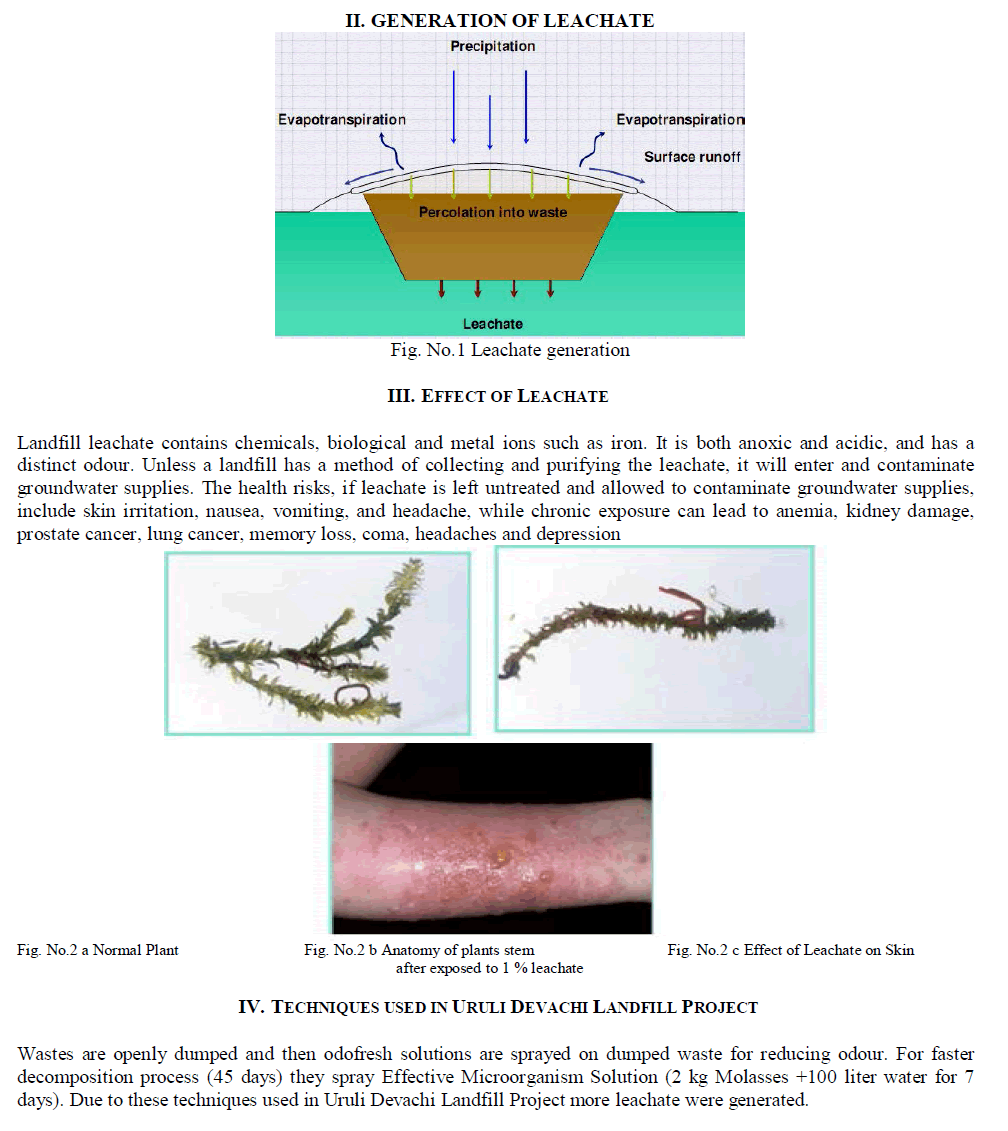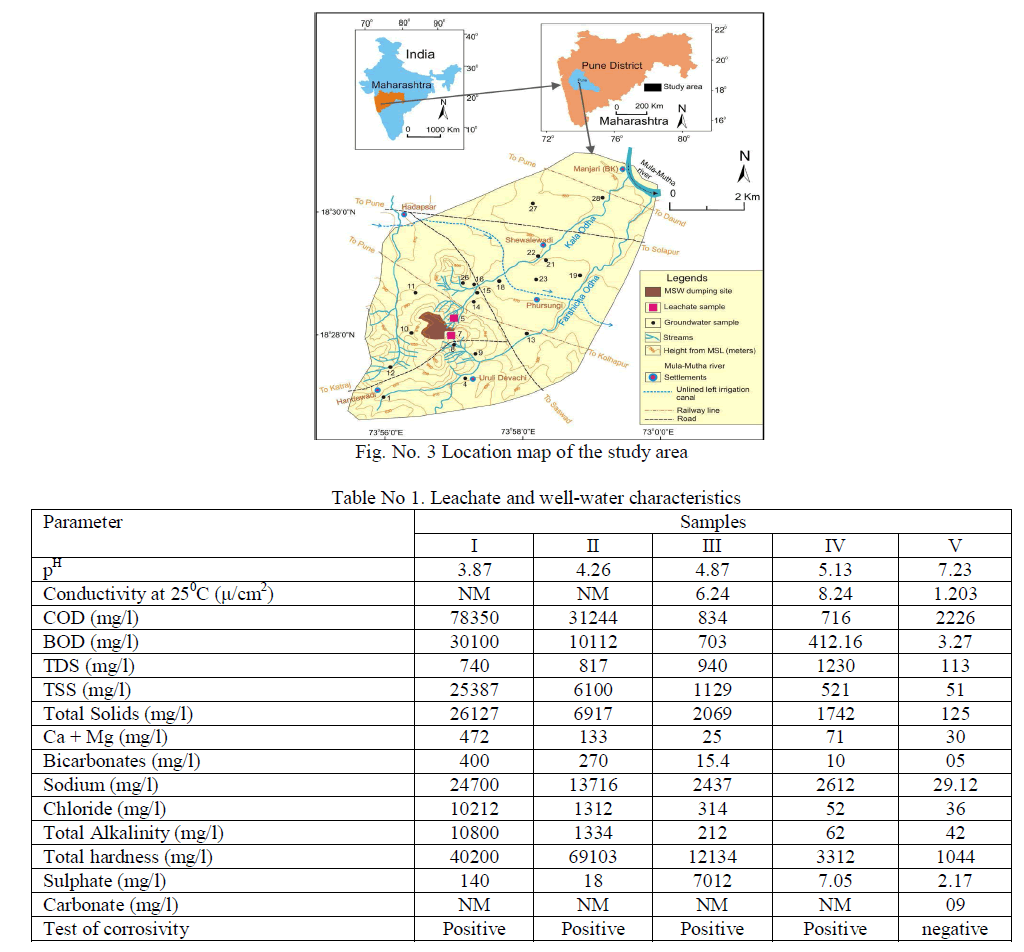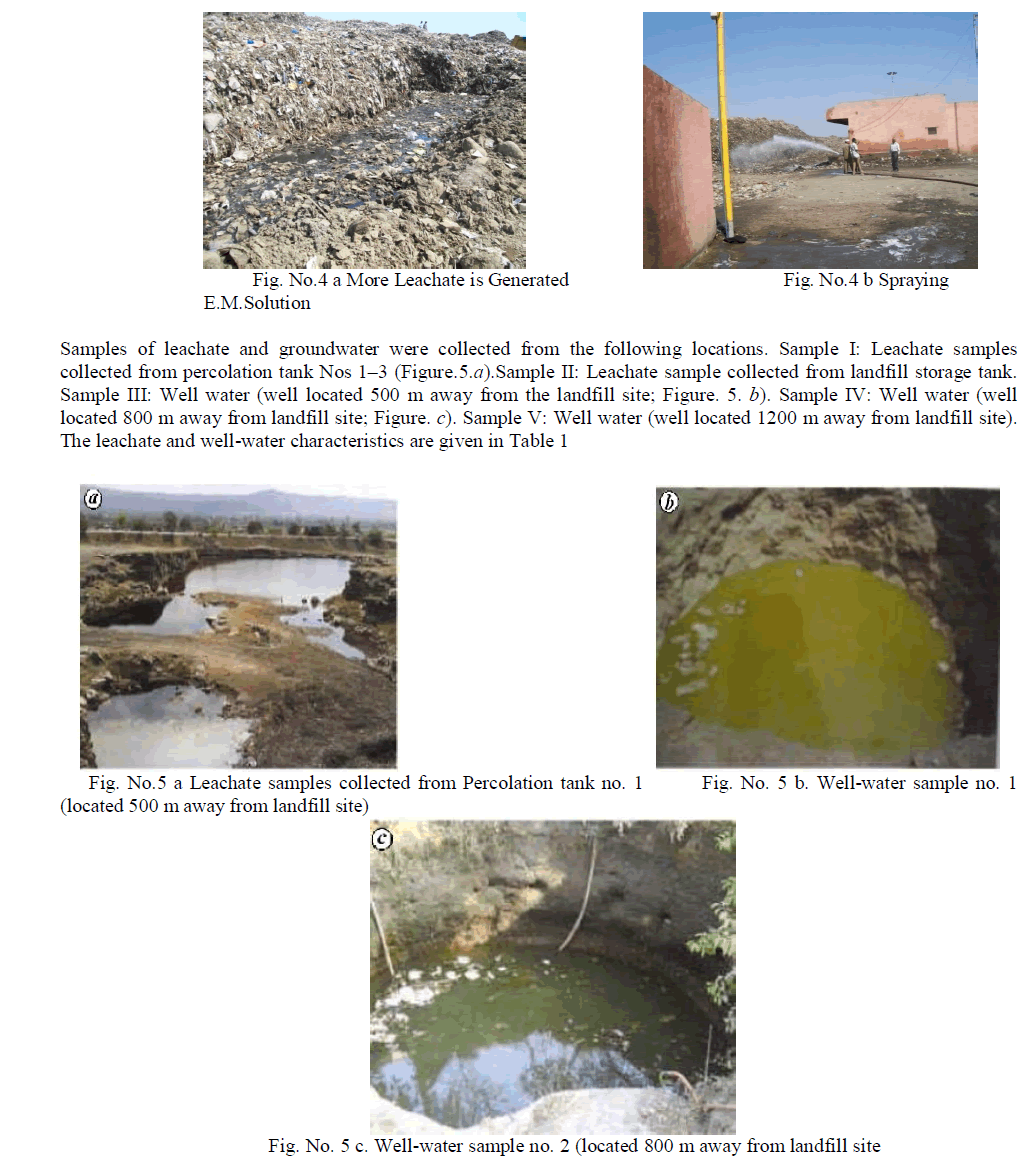ISSN ONLINE(2319-8753)PRINT(2347-6710)
ISSN ONLINE(2319-8753)PRINT(2347-6710)
Manoj P. Wagh, Piyush K. Bhandari, Swapnil Kurhade
|
| Related article at Pubmed, Scholar Google |
Visit for more related articles at International Journal of Innovative Research in Science, Engineering and Technology
Safe and reliable disposal of municipal solid wastes and residues is an important component of integrated waste management. Open dumps, commonly found in Asian countries, are land disposal sites at which solid wastes are disposed of in such a manner that does not protect the environment, susceptible to open burning, and exposed to disease vectors and scavengers. Leachate is a polluted liquid emanating from the base of the landfill, which contains innumerable organic and inorganic compounds generated due to which serious ground water contamination was observed in wells. Present paper is a case study of Uruli Devachi (Open dump site), near Pune (M.S.) where daily 1000–1200 tonnes of solid waste are disposed at Uruli-Devachi village, and the site was dealing with problems of frequent fires, smoke, flies, birds and bad odour. PMC was spraying the waste with water to prevent fires, resulting in even greater quantities of leachate generated due to which Serious ground water contamination was observed in wells
Keywords |
| leachate, landfill, contamination. |
INTRODUCTION |
| In many Asian countries, solid waste disposal method still remains as open dumping for reasons such as, ignorance of the health risks associated with dumping of wastes, acceptance of the status due to lack of financial resources to do anything better and lack of political will to protect and improve public health and the environment. Many old landfills and dumpsites existing throughout the developing countries pose a threat for human health. |
| “Leachate “refers to liquids that migrate from the waste carrying dissolved or suspended contaminants. Leachate results from precipitation entering the landfill and from moisture that exists in the waste when it is disposed. Contaminants in the buried refuse may result from the disposal of industrial waste, ash, waste treatment sludge, household hazardous wastes, or from normal waste decomposition. If uncontrolled, landfill leachate can be responsible for contaminating ground water and surface water. The composition of leachate varies greatly from site to site, and can vary within a particular site. Some of the factors affecting composition include: |
| Age of landfill |
| Types of waste |
| Degree of decomposition that has taken place |
| Physical modification of the waste (e.g. shredding). |
| Once ground water is contaminated, it is very costly to clean up. Today’s landfills, therefore, undergo rigorous surveying, design, and construction procedures that provide many safeguards for the control of leachate migration. |
 |
 |
 |
CONCLUSIONS |
| Government of India has laid down the Municipal Solid Waste (Management and Handling) Rules 2000 for all Municipal Councils and Municipal Corporations. It is now binding on them to dispose off Municipal Solid Waste [MSW] in a scientific manner. Scientifically designed landfill is one of the most effective ways for proper disposal of MSW. Selection of site for landfill is important to avoid environmental, ecological, social and economical problems. For Indian environment ground water depth, soil at selected site and water supply well are important criteria. |
References |
|